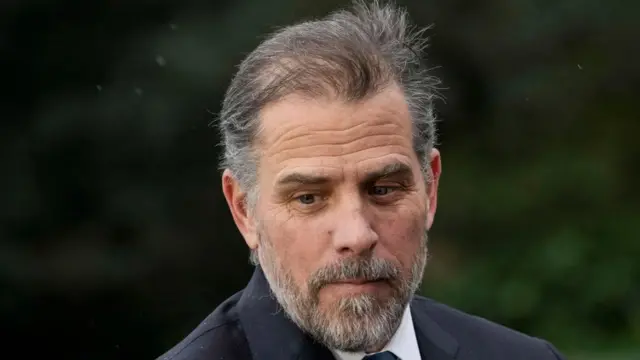Dec 1, 2024
President Biden Pardons Hunter Biden, Erasing Tax and Gun Convictions
Topline:
President Joe Biden issued a full pardon for his son Hunter Biden on Sunday, wiping away tax and gun-related convictions. The move, which the president attributed to politically motivated charges against his son, has reignited partisan debates and drawn sharp criticism from Republican lawmakers.
Key Facts:
Scope of the Pardon:
The pardon, described as “full and unconditional,” applies to all alleged offenses committed by Hunter Biden since 2014. This includes his felony conviction for lying on a federal gun form and a guilty plea for felony tax violations.Reversal of Previous Stance:
Earlier this year, President Biden ruled out using his pardoning power on Hunter. The president argued that his son had been “unfairly and selectively prosecuted” as part of a politically motivated attack by opponents in Congress.Defense of the Pardon:
Biden stated that Hunter has been sober for over five years and emphasized that such charges are rarely pursued by the Department of Justice (DOJ). He also criticized the tax charges, noting that similar cases involving late tax payments due to addiction are typically resolved with fines and interest rather than criminal prosecution.
Crucial Quote:
“No reasonable person who looks at the facts of Hunter’s cases can reach any other conclusion than Hunter was singled out only because he is my son – and that is wrong,” President Biden said in a statement.
Chief Critics:
The pardon drew intense backlash from Republicans:
- Rep. James Comer (R-Ky.): Criticized the move as an attempt to avoid accountability, referencing ongoing investigations into the Biden family’s alleged misconduct.
- Rep. Marjorie Taylor Greene (R-Ga.): Called Biden a “liar and hypocrite,” accusing him of targeting political rivals’ families while shielding his own.
- Sen. Chuck Grassley (R-Iowa): Expressed shock, stating, “Shame on me” for believing Biden’s earlier promises not to pardon Hunter.
- Donald Trump: Questioned whether the pardon would extend to Capitol riot defendants, whom he has pledged to pardon if re-elected.
Tangent:
Hunter Biden faced a potential 25-year sentence for gun charges and an additional 17 years for tax violations. However, federal defendants rarely receive the maximum penalty, and he might not have faced prison time even without the pardon.
What To Watch For:
The pardon could shield Hunter Biden from future charges by the incoming Trump administration, which has long accused the Bidens of engaging in illegal foreign business deals. However, no concrete evidence has surfaced to substantiate these allegations. The move also prevents further legal consequences tied to the original tax and gun charges.
Contra:
President Biden suggested he might not have issued the pardon had an earlier plea deal for Hunter remained intact. The agreement—allowing Hunter to plead guilty to lesser tax charges and enter a diversion program for the gun offense—fell apart due to disagreements over its scope.
Key Background:
Hunter Biden has faced years of legal and political scrutiny for his personal struggles and business dealings:
Legal Troubles:
Federal prosecutors accused him of lying about his drug addiction on a 2018 gun purchase form and failing to pay over $1 million in taxes. After his plea deal collapsed, DOJ investigators pursued more severe charges, alleging he prioritized luxury spending over tax payments.Republican Investigations:
GOP lawmakers have accused Hunter Biden of exploiting his family name in foreign business ventures in China and Ukraine. Although no concrete evidence has emerged implicating President Biden, Republicans continue to scrutinize the family’s financial dealings.
Who Can the President Pardon?
The president’s pardoning power is among the broadest in the U.S. Constitution. Aside from impeachment cases, there are few limitations. Historically, presidents have issued controversial pardons, such as Gerald Ford’s for Richard Nixon and Bill Clinton’s for his brother Roger.
This latest pardon highlights the contentious nature of presidential clemency, particularly when it intersects with family and political rivalries.

